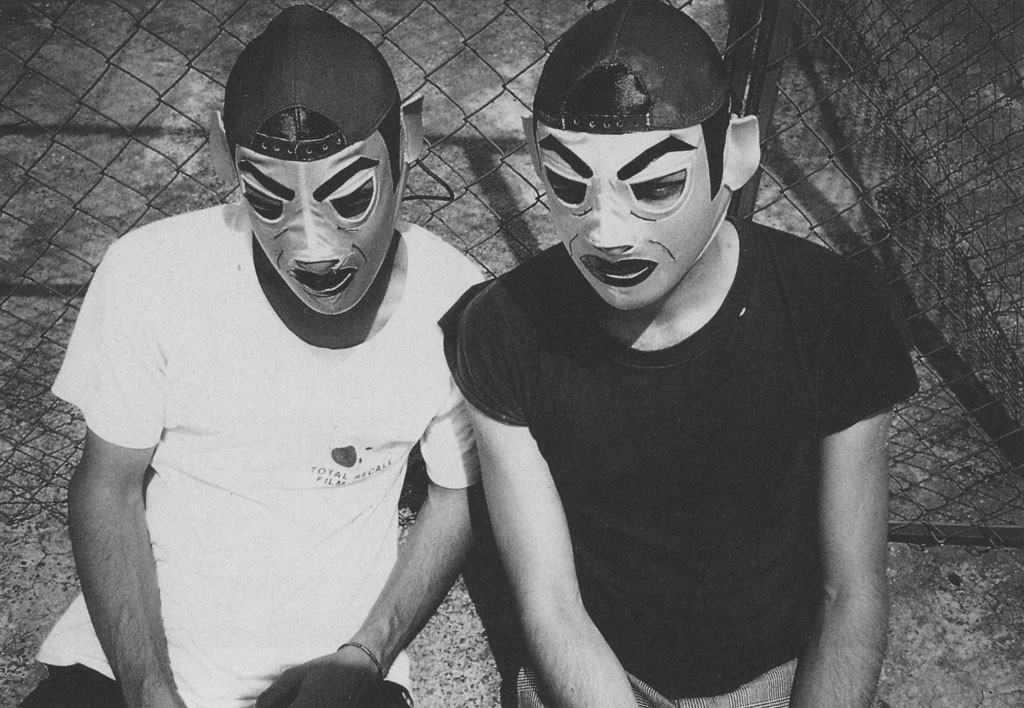ART-PREVIEW:Carlos Amorales-The Factory
 In his artistic research, Carlos Amorales is interested mainly in language and the impossibility/possibility of communicating through means that are unrecognizable or not codified: sounds, gestures, and symbols. Amorales experiments at the limits between image and sign with an array of platforms: animation, video, film, drawing, installation, performance, and sound.
In his artistic research, Carlos Amorales is interested mainly in language and the impossibility/possibility of communicating through means that are unrecognizable or not codified: sounds, gestures, and symbols. Amorales experiments at the limits between image and sign with an array of platforms: animation, video, film, drawing, installation, performance, and sound.
By Efi Michalarou
Photo: Stedelijk Museum Archive

Carlos Amorales’ practice is based on different forms of translation: instruments that become characters in his films, letters that become shapes, and narratives unfold as non-verbal actions. “The Factory” the first ever retrospective exhibition in Europe of the work of Carlos Amorales, showcases the work of one of Mexico’s most important contemporary artists from the 1990s to the present day. Spanning 14 rooms of the Stedelijk Museum, the exhibition includes spatial works, installations, paintings, drawings, videos, prints, textiles, animations, and sound works, which Amorales incorporates in his open, non-chronological, large-scale spatial installations. Visitors are able to navigate their own route around Amorales’s world of images and stories that explore the field of tension between the individual and society. Working together with Textiellab in Tilburg, the Netherlands, Amorales has made a new installation for the exhibition titled “Orgy of Narcissus” (2019), a frieze comprising 60 sections of textile woven from silk thread in which the artist examines the phenomenon of the Internet meme (images that spread rapidly online, their form and meaning constantly shifting) with overlapping streams of depictions of a figure captured in an endless narcissistic orgy. Carlos Amorales was born in Mexico City in 1970. He traveled to Amsterdam in 1992 to study at the Gerrit Rietveld Academie and then at the Rijksakademie van Beeldende Kunsten (1996-97). Amorales’s practice encompasses animation, drawing, installation, video, and performance; he also collaborates with professional animators, composers, designers, musicians and even wrestlers. Having matured under the influence of both Mexican and European cultures, Amorales frequently explores the commonalities and disparities of the two milieus by juxtaposing their distinctive vocabularies. His work is also deeply personal, reflective of emotional introversion and at times obscure, it journeys into a dark world of fantasy, blurring the line between the real and the imagined. Amorales left Amsterdam in 2004 to return to Mexico City, where he set up his own studio. Inspired by the media’s mass production and distribution of imagery, with references to Warhol’s Factory and Disney’s early animation studio. In 1999, fascinated by dreams and nightmares, the uncanny, Goth culture, and phantasmagoria, Amorales began to assemble “Liquid Archive” (1999-2000), a digital image collection that represents his ongoing quest to understand these cultural and psychic phenomena. The essentially open-source character of the images that Amorales creates (other people have ‘borrowed’ freely from them), means they can detach themselves from the world of autonomous art and stray into the realms fashion, music videos, tattoos, and record covers – through which they return to art in the form of work by other artists. In later works such as “Black Cloud” (2007), these concerns remain apparent. Black Cloud is an immersive installation that portrays a dark, fanciful underworld. 30.000 black paper moths of 36 different types crowd every corner of the exhibition space, inducing in many viewers a claustrophobic sense of anxiety. A short accompanying video reveals the techniques used to produce the insects as ingeniously simple, but does not entirely demystify their creator, instead casting the artist in his workshop as a kind of sorcerer, a creator of fear. While most of his work emerges from an eerie realm in which the human figure might appear as a ghost or morph into an animal, he also engages with the real world by addressing prosaic social issues. Amorales’s project “Nuevos Ricos!” (2003–09) takes the form of a record label he founded with Mexican musician Julián Lede. The project was presented for the first time in an exhibition context at the Kunsthalle Fridericianum in Kassel, Germany, in 2009, where it consisted of a multidisciplinary exhibit incorporating a series of lectures, musical acts, performances, and discussions of piracy and copyright. In an echo of the editions issued by Fluxus, Amorales’s project also involves the sale of merchandise, confusing the distinction between artwork, reproduction, and product.
Info: Curator: Martijn van Nieuwenhuyzen, Stedelijk Museum, Museumplein 10, Amsterdam, Duration: 23/11/19-17/5/20, Days & Hours: Mon-Thu & Sat-Sun 10:00-18:00, Fri 10:00-20:00, www.stedelijk.nl

